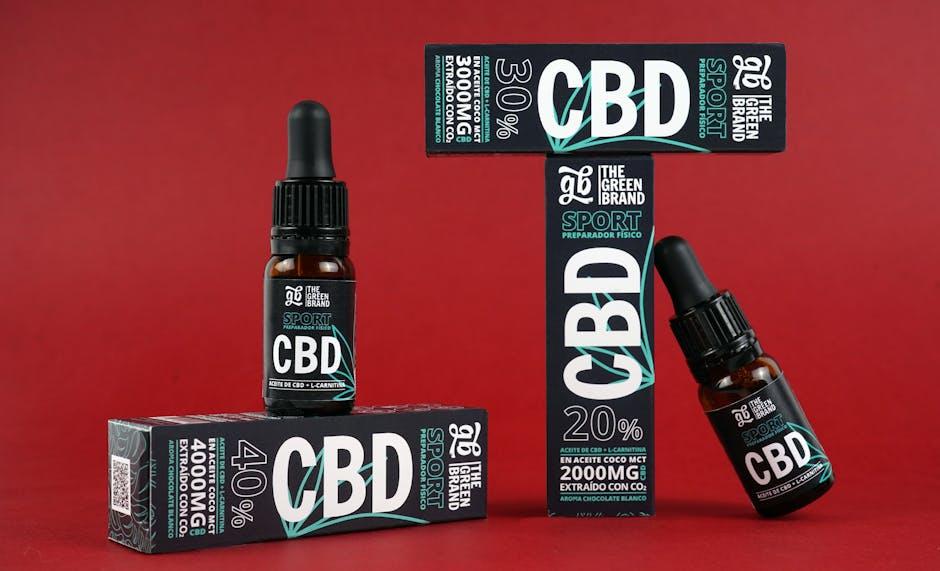In the realm of health and fitness, the journey from exertion to recovery is as crucial as the workout itself. Enter the powerful duo of L-Glutamine and L-Carnitine, two amino acids that have garnered attention for their roles in supporting bodily recovery after intense physical activity. As athletes and fitness enthusiasts alike seek ways to optimize their performance and enhance their recuperation, understanding the unique benefits and mechanisms of these compounds can pave the way for momentous advancements in recovery strategy. In this article, we will explore how L-Glutamine and L-Carnitine work synergistically to not only replenish and repair, but also to elevate your overall wellness, helping you to bounce back stronger and ready for your next challenge. Join us as we delve into the science behind these remarkable recovery proteins and discover how they can transform your post-workout routine.
Unlocking the Power of L-Glutamine: The Unsung Hero of Muscle Recovery
L-Glutamine is often overlooked in the realm of fitness and recovery, yet it plays a critical role in rejuvenating muscles and enhancing overall recovery. This amino acid, a building block of proteins, serves various functions in the body, primarily focusing on repairing muscle tissue after a grueling workout. When we engage in intense physical activity, our natural stores of glutamine can deplete quickly, making supplementation essential for athletes seeking optimal performance. Not only does it assist in muscle recovery, but it also supports immune function and gut health, which can be compromised during periods of high training intensity.
Incorporating L-Glutamine into your post-exercise routine can yield transformative benefits. Here are some of the key advantages of this powerful amino acid:
- Muscle Repair: Aids in the rebuilding of muscle fibers.
- Reduced Muscle Soreness: Helps alleviate DOMS (Delayed Onset Muscle Soreness).
- Enhanced Endurance: Improves stamina during prolonged workouts.
- Supports Immune System: Maintains immune health during rigorous training.
To illustrate the effectiveness of L-Glutamine, consider the following comparative table showcasing its benefits against those of other common recovery aids:
| Recovery Aid | Muscle Repair | Immune Support | Gut Health |
|---|---|---|---|
| L-Glutamine | ✔️ | ✔️ | ✔️ |
| Whey Protein | ✔️ | ❌ | ❌ |
| BCAAs | ✔️ | ❌ | ❌ |

L-Carnitine: Revving Up Energy Levels for Optimal Performance
L-Carnitine, a naturally occurring amino acid derivative, plays a crucial role in the conversion of fat into energy, making it a popular supplement among athletes and fitness enthusiasts. By facilitating the transport of fatty acids into the mitochondria, L-Carnitine enhances energy production and supports endurance during intense workouts. When the body has adequate levels of this powerhouse, it can effortlessly tap into fat stores, potentially leading to improved stamina and reduced fatigue. This means that athletes can train harder and longer, ultimately pushing their performance to new heights.
Moreover, integrating L-Carnitine into your post-workout regimen may aid in recovery and muscle preservation. Some research suggests that it can help reduce muscle soreness and prevent exercise-induced muscle damage, making the comeback after high-intensity training more manageable. This amino acid not only supports physical exertion but also enhances the body’s metabolic efficiency. Here are some potential benefits you might experience with L-Carnitine:
- Increased energy levels
- Boosted endurance
- Enhanced recovery
- Improved fat metabolism

Synergistic Benefits: How L-Glutamine and L-Carnitine Work Together
L-Glutamine and L-Carnitine create a powerful partnership that significantly boosts recovery after intense workouts. While L-Glutamine is vital for muscle repair and immune support, L-Carnitine plays a crucial role in energy production by facilitating the transport of fatty acids into the mitochondria. Together, they synergistically enhance recovery by:
- Reducing Muscle Soreness: L-Glutamine helps lower muscle breakdown, while L-Carnitine optimizes energy use, minimizing fatigue.
- Supporting Immune Function: The recovery process can strain the immune system; L-Glutamine replenishes necessary substrates for immune cell proliferation.
- Enhancing Endurance: By boosting fat metabolism, L-Carnitine improves performance, enabling longer and more effective workouts.
Research indicates that the combination of these amino acids can dramatically improve post-exercise recovery metrics. A recent study demonstrated that individuals supplementing with both L-Glutamine and L-Carnitine showed a:
| Recovery Metric | With Supplementation | No Supplementation |
|---|---|---|
| Muscle Soreness Rating (1-10) | 3 | 7 |
| Time to Recover (Days) | 2 | 5 |
| Fatigue Level (1-10) | 4 | 8 |

Practical Tips for Incorporating Recovery Proteins into Your Diet
Incorporating recovery proteins like L-Glutamine and L-Carnitine into your daily diet can be both delicious and hassle-free. Smoothies serve as a great base for adding protein powders; simply blend your choice of fruits, a scoop of Momentous Recovery Protein, and a liquid of your preference, such as almond milk or coconut water. For a post-workout snack, consider mixing the protein powder with Greek yogurt, topped with fresh berries and a drizzle of honey for added energy and flavor. If you’re feeling adventurous, protein pancakes can be a delightful way to kickstart your morning. Combine oats, eggs, and a scoop of protein for a hearty meal that supports muscle recovery right from the beginning of your day!
For those looking to enhance their meals, consider these simple options that seamlessly integrate recovery proteins into your dishes:
- Soups and Stews: Stir in a scoop of L-Glutamine while cooking for added nutritional value without altering taste.
- Oatmeal: Mix in protein powder with your morning oats for a fulfilling breakfast.
- Baked Goods: Incorporate recovery protein into muffins or energy bars for a convenient on-the-go snack.
Additionally, if you’re interested in a more organized approach to tracking your protein intake, the following table highlights various food sources that pair well with recovery proteins:
| Food Source | Protein Content (per serving) |
|---|---|
| Greek Yogurt | 10g |
| Almond Milk | 1g |
| Banana | 1g |
| Rolled Oats | 6g |
| Eggs | 6g |
To Conclude
In conclusion, the journey towards optimal recovery is a multifaceted endeavor, and the integration of Momentous Recovery Protein can serve as a significant catalyst on this path. By harnessing the synergistic benefits of L-Glutamine and L-Carnitine, athletes and fitness enthusiasts alike may find themselves better equipped to overcome the physical toll of training and daily activities. As we navigate the ever-evolving landscape of sports nutrition, it becomes clear that understanding and embracing the role of these powerful amino acids can pave the way for enhanced performance and resilience. Whether you’re an elite competitor or someone seeking to elevate their fitness game, incorporating Momentous Recovery Protein into your routine may well be the key to unlocking your full potential. So, venture forth with knowledge and intention, and let your body embrace the recovery it deserves.
